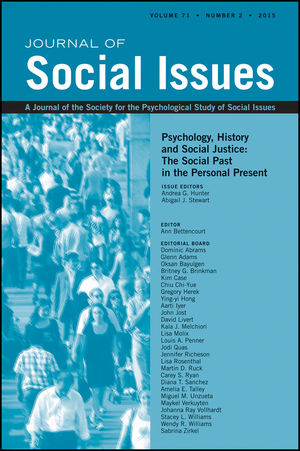Nagata, D.K., Kim, J.H.J., & Nguyen, T. (2015). Processing Cultural Trauma: Intergenerational Effects of the Japanese American Incarceration. Journal of Social Issues, 71(2), 356-370.
Abstract
During World War II, the United States confined 120,000 Japanese Americans in incarceration camps based solely on their Japanese ancestry. Two thirds of those forced to live in the desolate camps were U.S. citizens. Decades later, the U.S. government concluded that Japanese Americans had suffered a grave injustice and issued a written apology and monetary award to each surviving incarceree. This article frames the incarceration as a race-based personal and cultural trauma that had enduring consequences for Japanese Americans. Critical impacts of this historic event on identity and postwar trauma coping among U.S.-born second generation Japanese American incarcerees and their offspring are described. We highlight how individual, intergenerational, and sociocultural processes interacted across decades to shape cultural trauma response and the movement to seek redress.

